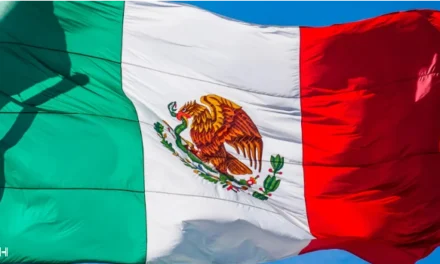The relationship between Qatar and Israel has long been a complex and controversial topic in the Middle East. Despite the lack of formal diplomatic ties, the two nations have found themselves entangled in a delicate web of political, economic, and humanitarian interests. This article aims to shed light on the intricate dynamics between Qatar and Israel, exploring the historical context, current stances, and potential future trajectories of their relationship.
Historical Overview of Qatar-Israel Ties
Qatar and Israel have never established formal diplomatic relations, largely due to Qatar’s stance on the Israeli-Palestinian conflict. Qatar has traditionally been a vocal supporter of Palestinian rights and has condemned Israeli settlements in the occupied territories. However, there have been instances of behind-the-scenes communication and cooperation between the two nations, particularly in times of crisis or when mutual interests align.
Key Events and Milestones:
- 1996: Qatar hosted a short-lived Israeli trade office, which was later closed due to pressure from other Arab nations.
- 2008-2009: Qatar played a mediating role during the Israeli-Hamas conflict in Gaza, facilitating negotiations for a ceasefire.
- 2017: Qatar’s alleged support for Hamas, a Palestinian militant group designated as a terrorist organization by Israel, led to a diplomatic crisis with several Gulf nations.
Qatar’s Current Political Stance on Israel
Qatar’s official position on Israel remains complex and multifaceted. While Qatar does not formally recognize Israel as a state, it has maintained communication channels with Israeli officials, particularly regarding issues related to the Palestinian territories.
Qatar’s relationship with Hamas, the de facto ruling authority in the Gaza Strip, has been a point of contention. Qatar has provided financial aid to Hamas, which it considers a legitimate political movement representing Palestinians. However, Israel and several Western nations view Hamas as a terrorist organization due to its militant activities and refusal to recognize Israel’s right to exist.
Regarding the Israeli-Palestinian conflict, Qatar has consistently advocated for a two-state solution, with East Jerusalem as the capital of a future Palestinian state. Qatar has also criticized Israeli settlements in the occupied West Bank as a major obstacle to peace.
Economic and Trade Ties Between Qatar and Israel
Despite the lack of formal diplomatic relations, Qatar and Israel have maintained limited economic and trade ties. Qatar has invested in several Israeli companies, particularly in the technology and startup sectors. However, the volume of trade between the two nations remains relatively low compared to Israel’s trade with other regional partners.
Potential areas for future economic partnership include energy, technology, and agriculture, as both nations possess expertise and resources in these fields. However, any significant expansion of economic cooperation would likely hinge on progress in the Israeli-Palestinian peace process.
Qatar’s Role in Israeli-Palestinian Peace Efforts
Qatar has played an active role in mediating between Israel and Palestinian factions, particularly Hamas. In 2008 and 2014, Qatar facilitated negotiations between Israel and Hamas for ceasefires during conflicts in the Gaza Strip.
Qatar has also provided substantial financial aid to the Palestinian territories, including funds for reconstruction efforts in Gaza after Israeli military operations. However, Qatar’s perceived bias towards Hamas has drawn criticism from Israel and other nations, who accuse Qatar of indirectly supporting terrorism.
Public Opinion in Qatar Towards Israel
Public opinion in Qatar towards Israel is largely shaped by the ongoing Israeli-Palestinian conflict and the perceived mistreatment of Palestinians by Israeli authorities. Surveys have shown that a significant portion of the Qatari population holds negative views towards Israel, influenced by media narratives and regional sentiments.
However, there are also generational shifts in perspectives, with younger Qataris being more open to the idea of normalizing relations with Israel, particularly if it leads to a resolution of the Palestinian issue.
Other Gulf Nations’ Stances on Israel
Qatar’s position on Israel is not unique among Gulf Cooperation Council (GCC) nations. Most GCC countries have traditionally maintained a critical stance towards Israel due to the Palestinian issue. However, the signing of the Abraham Accords in 2020 marked a significant shift, with the United Arab Emirates and Bahrain establishing formal diplomatic ties with Israel.
While Qatar has not followed suit in normalizing relations with Israel, there is speculation that it may consider doing so if progress is made in resolving the Israeli-Palestinian conflict. Qatar’s decision would likely be influenced by the actions of other regional players and the potential economic and political benefits of closer ties with Israel.
Conclusion
The relationship between Qatar and Israel is a complex tapestry woven with political, economic, and humanitarian threads. While the lack of formal diplomatic ties and Qatar’s support for Palestinian rights have created tensions, there have been instances of cooperation and communication, particularly in times of crisis or when mutual interests align.
As the region continues to evolve, the future trajectory of Qatar-Israel relations will likely be shaped by progress in the Israeli-Palestinian peace process, shifts in public opinion, and the actions of other regional players. Continued dialogue, conflict resolution efforts, and a willingness to find common ground will be crucial in navigating this intricate dynamic.
Ultimately, the question of whether Qatar supports Israel or not cannot be answered with a simple yes or no. It is a nuanced and multifaceted issue that requires a deeper understanding of the historical, political, and humanitarian factors at play.
FAQ: Does Qatar support Israel?
Qatar does not have diplomatic relations with Israel. Qatar has been known to support the Palestinian cause, including providing aid to Gaza and engaging in hostage negotiations involving Israeli hostages.
What is Qatar’s role in hostage negotiations involving Israel?
Qatar has been involved in hostage negotiations as a mediator, particularly in cases involving Israeli hostages held by groups such as Hamas in Gaza.
How does Qatar’s relationship with Hamas impact its stance on Israel?
Qatar maintains a close relationship with Hamas, which influences its stance on issues related to Israel, such as providing aid to Gaza and participating in negotiations involving Hamas and Israeli authorities.
Has Qatar supported Hamas in any conflicts with Israel?
Qatar has been criticized for its alleged support of Hamas, including providing financial aid and political backing, which some view as indirectly supporting Hamas in conflicts with Israel.
What is the current status of Qatar-Israel relations?
Qatar and Israel do not have official diplomatic relations. However, Qatar has been involved in indirect negotiations and humanitarian efforts related to conflicts involving Israel and Palestinian groups like Hamas.
How has Qatar’s involvement in hostage negotiations affected its international relations?
Qatar’s involvement in hostage negotiations, particularly in cases involving Israeli hostages, has played a role in shaping its reputation and relationships with other countries involved in the region.
What are the key issues that Qatar faces regarding its stance on Israel?
Qatar faces challenges in balancing its support for Palestinians and Hamas with its desire to maintain regional stability and relationships with countries like Israel and the United States.





